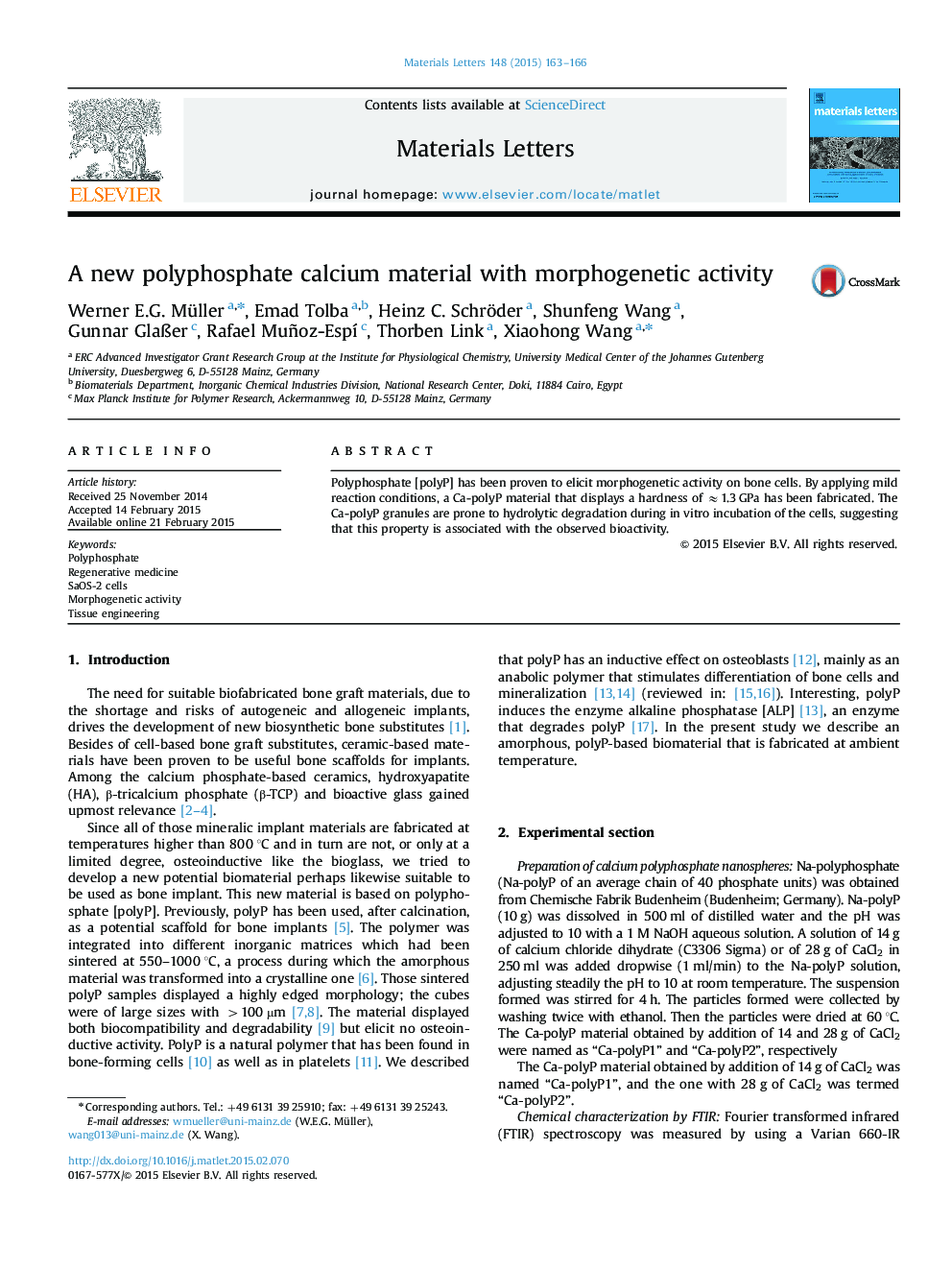| Article ID | Journal | Published Year | Pages | File Type |
|---|---|---|---|---|
| 1642939 | Materials Letters | 2015 | 4 Pages |
•Polyphosphate [polyP] causes morphogenetic activity if added to bone cells (osteoblasts) in vitro.•A calcium-polyP [Ca-polyP] complex has been fabricated that is amorphous and has a hardness of ≈1.3 GPa.•The spherical nanoparticles have a diameter of ≈0.2 µm.•This Ca-polyP is biologically active; it causes induction of the gene alkaline phosphatase.•The Ca-polyP granules are hydrolytically degraded during in vitro incubation with cells.
Polyphosphate [polyP] has been proven to elicit morphogenetic activity on bone cells. By applying mild reaction conditions, a Ca-polyP material that displays a hardness of ≈1.3 GPa has been fabricated. The Ca-polyP granules are prone to hydrolytic degradation during in vitro incubation of the cells, suggesting that this property is associated with the observed bioactivity.
Graphical abstractPolyphosphate [polyP] has been proven to elicit morphogenetic activity on bone cells. We describe the preparation of amorphous, solid Ca-polyP that has a spherical morphology. This material is biologically active and induces the marker gene of osteoblast formation, the alkaline phosphatase.Figure optionsDownload full-size imageDownload as PowerPoint slide
